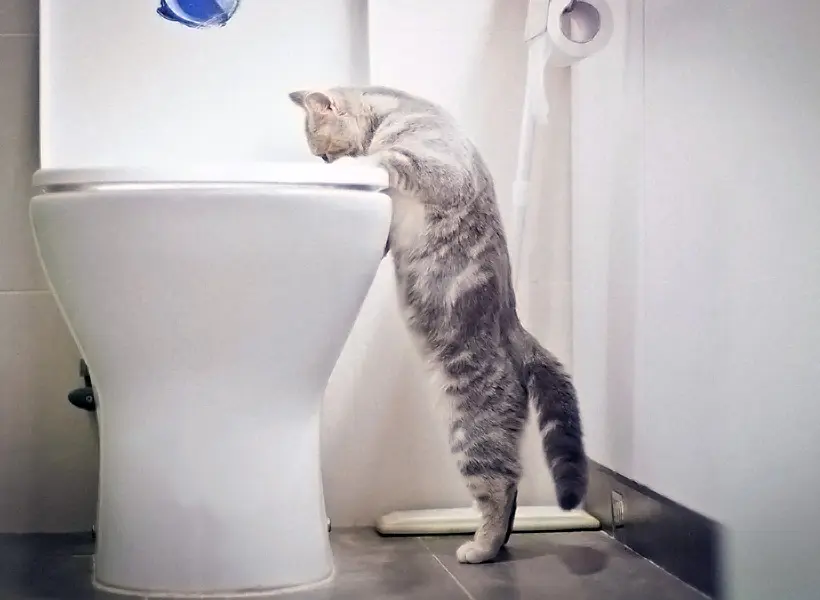The Consequences of Flushing Cat Poop Down Your Toilet - Protect Your Pipes
The Consequences of Flushing Cat Poop Down Your Toilet - Protect Your Pipes
Blog Article
Every person is bound to have their private theory on the subject of Can You Flush Cat Poop Down The Toilet?.

Intro
As cat owners, it's necessary to be mindful of exactly how we throw away our feline friends' waste. While it might seem convenient to flush feline poop down the bathroom, this technique can have destructive consequences for both the environment and human health and wellness.
Environmental Impact
Flushing feline poop presents unsafe virus and bloodsuckers right into the water, posturing a considerable danger to water environments. These pollutants can adversely affect marine life and compromise water quality.
Health Risks
In addition to environmental issues, flushing feline waste can additionally posture wellness threats to human beings. Feline feces might contain Toxoplasma gondii, a bloodsucker that can create toxoplasmosis-- a possibly serious health problem, especially for pregnant women and people with weakened body immune systems.
Alternatives to Flushing
Fortunately, there are more secure and more liable methods to dispose of pet cat poop. Think about the complying with alternatives:
1. Scoop and Dispose in Trash
The most usual technique of disposing of feline poop is to scoop it into a biodegradable bag and toss it in the trash. Be sure to make use of a committed trash inside story and throw away the waste without delay.
2. Usage Biodegradable Litter
Go with eco-friendly cat litter made from products such as corn or wheat. These clutters are eco-friendly and can be safely dealt with in the garbage.
3. Hide in the Yard
If you have a backyard, think about hiding feline waste in a designated location away from vegetable gardens and water resources. Be sure to dig deep adequate to avoid contamination of groundwater.
4. Mount a Pet Waste Disposal System
Purchase an animal garbage disposal system especially created for cat waste. These systems utilize enzymes to break down the waste, decreasing smell and environmental influence.
Conclusion
Accountable pet possession prolongs past supplying food and sanctuary-- it likewise includes proper waste administration. By avoiding flushing feline poop down the commode and choosing alternate disposal methods, we can minimize our environmental impact and protect human health and wellness.
Why Can’t I Flush Cat Poop?
It Spreads a Parasite
Cats are frequently infected with a parasite called toxoplasma gondii. The parasite causes an infection called toxoplasmosis. It is usually harmless to cats. The parasite only uses cat poop as a host for its eggs. Otherwise, the cat’s immune system usually keeps the infection at low enough levels to maintain its own health. But it does not stop the develop of eggs. These eggs are tiny and surprisingly tough. They may survive for a year before they begin to grow. But that’s the problem.
Our wastewater system is not designed to deal with toxoplasmosis eggs. Instead, most eggs will flush from your toilet into sewers and wastewater management plants. After the sewage is treated for many other harmful things in it, it is typically released into local rivers, lakes, or oceans. Here, the toxoplasmosis eggs can find new hosts, including starfish, crabs, otters, and many other wildlife. For many, this is a significant risk to their health. Toxoplasmosis can also end up infecting water sources that are important for agriculture, which means our deer, pigs, and sheep can get infected too.
Is There Risk to Humans?
There can be a risk to human life from flushing cat poop down the toilet. If you do so, the parasites from your cat’s poop can end up in shellfish, game animals, or livestock. If this meat is then served raw or undercooked, the people who eat it can get sick.
In fact, according to the CDC, 40 million people in the United States are infected with toxoplasma gondii. They get it from exposure to infected seafood, or from some kind of cat poop contamination, like drinking from a stream that is contaminated or touching anything that has come into contact with cat poop. That includes just cleaning a cat litter box.
Most people who get infected with these parasites will not develop any symptoms. However, for pregnant women or for those with compromised immune systems, the parasite can cause severe health problems.
How to Handle Cat Poop
The best way to handle cat poop is actually to clean the box more often. The eggs that the parasite sheds will not become active until one to five days after the cat poops. That means that if you clean daily, you’re much less likely to come into direct contact with infectious eggs.
That said, always dispose of cat poop in the garbage and not down the toilet. Wash your hands before and after you clean the litter box, and bring the bag of poop right outside to your garbage bins.
https://trenchlesssolutionsusa.com/why-cant-i-flush-cat-poop/

As an enthusiastic reader on Don’t flush cat feces down the toilet, I figured sharing that segment was worthwhile. Appreciated our content? Please share it. Help somebody else discover it. Thanks so much for going through it.
Click Here Report this page